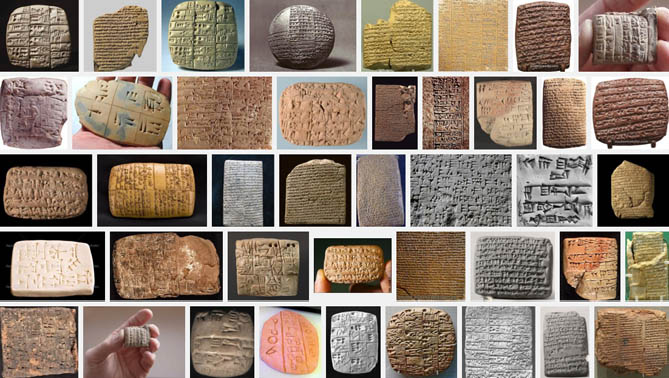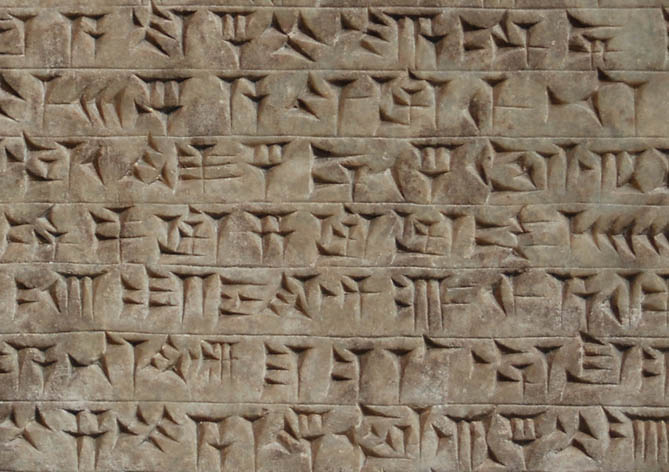
|
Lorna Mills and Sally McKay
Digital Media Tree this blog's archive OVVLvverk Lorna Mills: Artworks / Persona Volare / contact Sally McKay: GIFS / cv and contact |
View current page
...more recent posts
|
"may owls nest in your attic"
If I had the magic to insure that one human-made thing would last forever this might be it.
We saw this object in the ROM exhibition about Mesopatamia. There were a lot of other cuneiform clay tablets as well. This one is relatively recent, although the story itself predates this object. The first instances of cuneiform are from Sumeria. Those people were the first humans we know about to keep written records. Like many written languages, cuneiform started as pictograms and evolved into more abstract symbols. The little marks were made with the ends of reeds, which grew abundantly along the Tigris and Euphrates. Luckily, there was a lot of clay around too. This tablet was made by Assyrians, who followed the Sumerians as the predominant culture in the Fertile Crescent. The Epic of Gilgamesh is a pretty great story, an epic bro-mance, with lots of really erotic side-kick loyalty action and mythic monster-killing by physically fit young men. There's one section about an epic flood. One guy gets tipped off by the gods and builds a huge boat for his family and a bunch of animals. Once the rains stops, they send out a dove, but it comes back. Later they send out a swallow, and it comes back too. Eventually they send out a raven which doesn't return, so they figure it found some land. Sound familiar? Floods were a big deal in Mesopotamia. The story also has some great curses. Gilgamesh is devastated when his BFF dies, and in an irrational fit he blames Shamat, the priestess of Ishtar. He says some truly awful things that he later takes back. Here is a snippet, from Stephen Mitchell's 21st century translation: …may your roof keep leaking and no carpenter fix it, Same parts of the curse, translated a bit more rigorously by Andrew George in 1999.
Not all cuneiform is narrative. A lot of it is record keeping, or reports on battles, or, just, whatever it was that people need to write down. I think it's all gorgeous. |
 The Epic of Gilgamesh, Tablet VI, clay, 7th Century BCE.
The Epic of Gilgamesh, Tablet VI, clay, 7th Century BCE.
